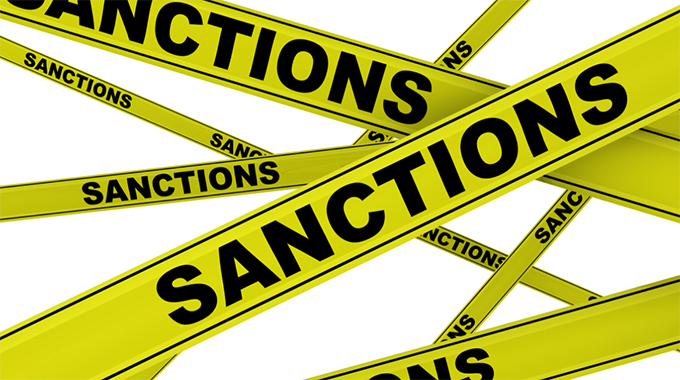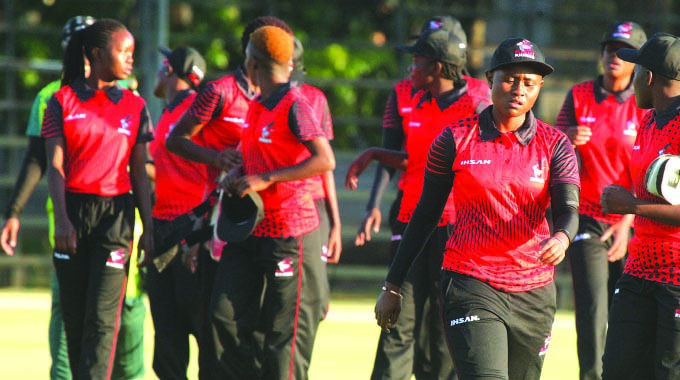Sanctions: An injury to one, is an injury to all

Elliot Ziwira
Senior Writer
There are those in Western capitals who sit in elliptical air-conditioned offices to discuss our plight as Zimbabwean citizens, over wafting whiffs of rich cigar smoke and sips of whisky from diamond rimmed decanters, yet they know little about our story.
We are Zimbabweans and we have a history, which we take pride in. We are Africans of colour from that beautiful continent, the scramble for whose richly endowed belly is recorded in History; our history of struggle and toil.
We have a story to tell, not because it hasn’t been told, No! But because it has been told over and over again through many third person voices, whose idea of the tale was not only to amplify it, but to distort it.
The original story has been lost in the maze after escaping many mouths and changing battalions of ears over centuries of misinformation.
Now, nobody seems to know whose story it really is. Everything about the story is so distorted.
Curiously, however, those sitting in judgment do not seem to know what economic challenges mean, because they have never been exposed to such.
Our story seems to be running ahead of itself. You see, it is that kind of tale that refuses to be bottled anymore.
Maybe you have had that kind of feeling once, when you got so impatient that you felt like opening up to strangers about events in your life that really got you questioning whether you were still alive or had already joined your ancestors.
Perhaps you have lost the trail, we are Zimbabweans and Africans.
Our story begins with the land, and is all about the land, for it was because of our desire to correct the recalcitrant imbalances that colonialism brought to our doorsteps that a collective decision by our friends from “where the sun sets”, was passed against us.
You see, our country was once colonised by the British, and got independent in 1980 after a protracted struggle that robbed us of over 50 000 of our fellow countrymen.
There is a method to our challenges.
The downturn came in the early 1990s, when we embarked on the Western-sponsored Economic Structural Adjustment Programme, and the abattoirs of broken dreams left in its wake are tacked to our shared memory.
Dearie us, we thought they were our friends – wise men from the West.
Everything collapsed on us when the issue of our land was raised.
The land is close to our hearts as Africans, because it is an inheritance bestowed from generation to generation, without which we are doomed. The land clothes us, feeds us and shields us from the vagaries of both nature and Man.
So, it was that when we reminded our erstwhile coloniser-friends to recall our tête-à-tête behind closed doors at Lancaster House in 1979, they scoffed at us, and called the agreement a mere piece of paper.
But you see, we Zimbabweans are a humble people; we are never known to throw the first punch.
In a country thousands of miles away, a parliament – both lower and upper Houses, at the instigation of Big Brother, met to decide our fate.
Curiously, they came up with a law: Zimbabwe Democracy and Economic Recovery Act of 2001, amended in 2018. Our motherland, small and insignificant as she is, was slapped with economic sanctions.
We really wonder why.
They keep yapping that the sanctions are targeted, but this vexes us, it sure does.
In Africa, we believe in communal ownership of amenities – we share, that is what makes us one.
We believe that no man is an island, hence, we share salt, mealie meal, wells, boreholes, grazing land, sorrows, joys and other such facilities that keep us going.
So, when we hear that Musumare has been targeted not to use such amenities that are key to his family’s wellbeing, we know that it is not him who will suffer, but his children.
Collective wisdom informs us that a villager’s children are ours as well.
Suppose Musumare is targeted, because of a tiff with the village head, or such other individual with influence, like Mashonganyika, for he is such a lowly man, when his wife or children seek salt, matches or mealie-meal, should we also deny them?
Should we tell our children not to play with his children, or attend school with them?
Should his children be barred from using the bathing pond at Nyakambiri, the dip-tank at Guwati, the playground at Dombodzvuku, the clinic at Shambamuto, and the open veld where every villager takes cattle to graze?
If, indeed, we should do that and bar them also from the shops at Casino, the communal well and the borehole, then we would have lost that humane part in us; which tells us that we are because all of us are.
So if Musumare’s wife and children face hardships at our hands, would it help them to be told that it is their father and her husband who is targeted?
Supposing that it turns out the issue between their father and the village head, or Mashonganyika, the influential man, involves a piece of land that rightfully belongs to them, would they also not take it as the worst form of insensitivity, and set the battle lines in defence of their heritage?
This issue of targeted sanctions, then, has all but left us asking a lot of questions, especially those that have to do with this so-called democracy.
These sanctions have brought challenge upon challenge on us, yet our friends from “where the sun sets” say they are targeted. Targeted at us?
Our Government is hard-pressed to subsidise everything under the circumstances.
We used to be the breadbasket of Africa, but when the sanctions hit many people could not afford bread itself.
There is so much pain because of these sanctions, so much challenges around. Everywhere dreams are being shattered because of the illegal embargo.
Most of us have stopped driving to work; we have stopped just about everything, but still we remain burdened due to sanctions.
Though it is inevitable, for in Africa we are our brothers’ keepers, we dread falling sick, or having to bear the pain of taking care of each other’s hospital bills.
This is because the medical aid has been made ineffective because of the sanctions which have stiffled investment in the medical sector.
As the sanctions took effect, industiries too were affected, resulting in hordes of our fellow countrymen taking the great trek to the Diaspora, but we cannot all go. Zimbabwe is our motherland, it is the only country we know. Our hearts are here in the sod of the soil; our soil.
We Zimbabweans can only express the challenges we face as a result of the sanctions imposed on our country, because we live them, walk them, witness them, dream them, and see them reflected in our mirrors on a daily basis.
With the passage of each working day, we reflect on the pensioners in bank queues, bemoaning the many years they toiled for crumbs; and a nauseating feeling rises from the pit of the stomach, perforating the heart and rising to the throat. It is a feeling of crestfallenness, all because of the illegal Western sanctions imposed on us.
Maybe we should remain positive, because all we have on our hands is time; only that, time. Time for those of us on the global arena with the clout to determine destinies, to remember that it is not a crime to be Zimbabwean; to be a sovereign people.
We are citizens of a country inhabited by fellow human beings with dreams and aspirations.
We desire to have a choice on who should govern our affairs without being coerced through politics of the stomach.
Please enlighten us, these targeted sanctions, on whoever you say is targeted, have they also been extended to us? Or they have always been?









Comments